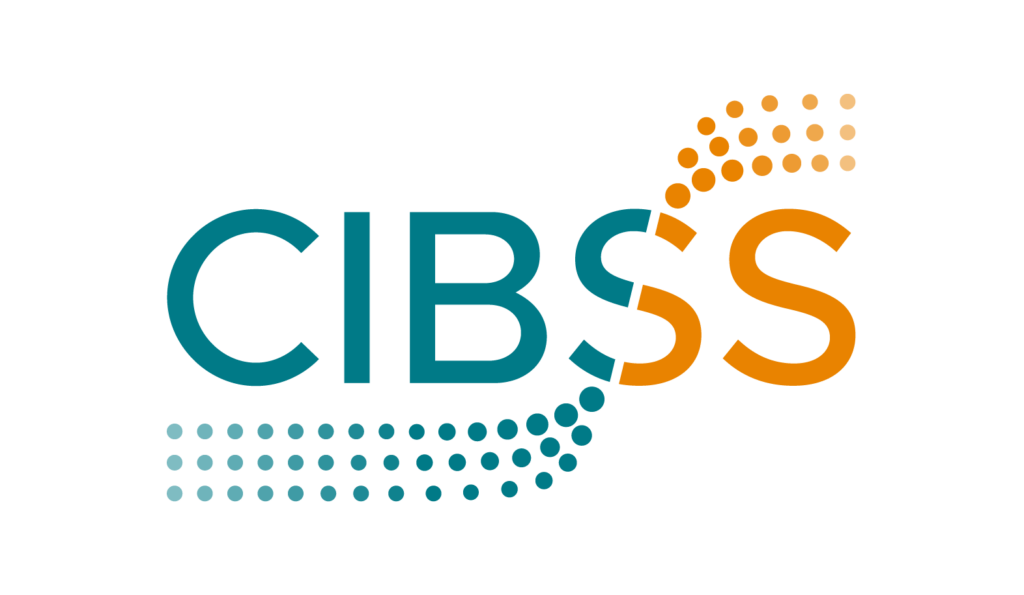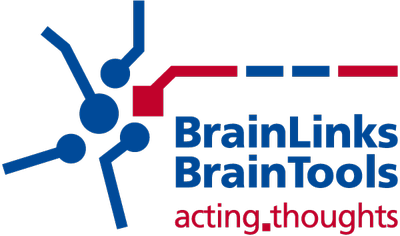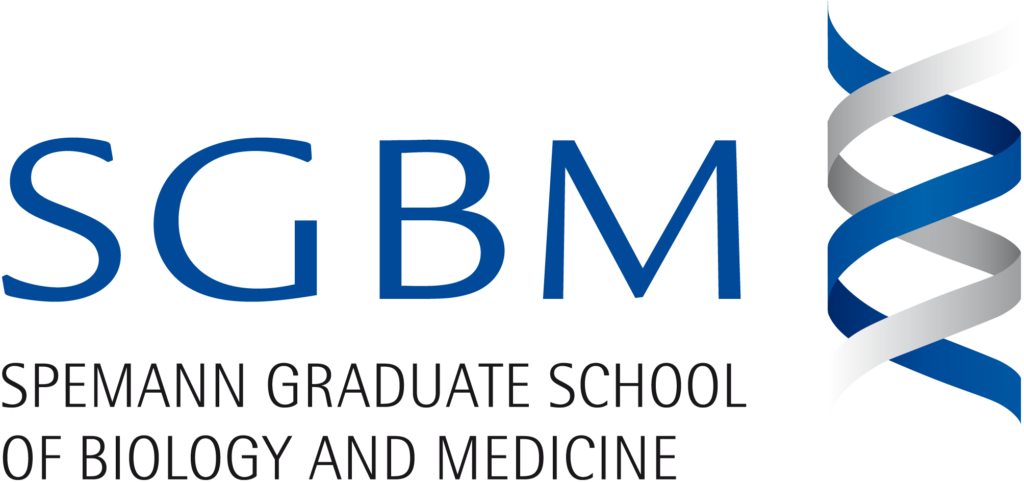Excellence Initiative Institutions
Scientific Centers
-
Cluster of Excellence: Future Forests
-
Cluster of Excellence: CIBSS Centre for Integrative Biological Signalling Studies
-
Cluster of Excellence: BIOSS Centre for Biological Signalling Studies
-
Cluster of Excellence: Living, Adaptive and Energy-autonomous Materials Systems (livMatS)
-
Cluster of Excellence: Brainlinks – Braintools
-
Zentrum für Medizin und Gesellschaft (ZMG)
-
Bernstein Center Freiburg (BCF)
-
Centre for Chronic Immunodeficiency (CCI)
-
Hilde-Mangold-Haus (HMH)
-
Freiburger Materials Research Center (FMF)
-
Freiburg Center for Interactive Materials and Bioinspired Technologies (FIT)
Collaborative Research Centers (CRC), Priority Programmes (PP) and DFG Research Units (FOR)
-
SPP 2433: Metrology on flying platforms
since 2024
-
CRC/TRR 384: Inhibitory neurons: shaping the cortical code (IN-CODE)
since 2024
-
Forschungsgruppe FOR 5596: Unfolding the potential of S-adenosylmethionine-dependent enzyme chemistry
since 2023
-
SPP 2349: Genomic Basis of Evolutionary Innovations (GEvol)
since 2022
-
PP 2389: Emergent Functions of Bacterial Multicellularity
since 2022
-
CRC 1479: Oncogene-driven immune escape (OncoEscape)
since 2021
-
FOR 5159: Resolving the prefrontal circuits of cognitive flexibility
since 2021
-
CRC 1403: Cell Death in Immunity, Inflammation and Disease
since 2020
-
PP 2237: MAdLand – Molecular Adaptation to Land: plant evolution to change
since 2020
-
PP 2205: Evolutionary Optimisation of Neuronal Processing
seit 2020
-
CRC 1425: Heterocellular Nature of Cardiac Lesions: Identities, Interactions, Implications
2020 to 2025
-
CRC 1381: Dynamic organization of cellular protein machineries: From biogenesis and modular assembly to function
since 2019
-
FOR 2816: The Autotrophy-Heterotrophy Switch in Cyanobacteria
since 2018
-
FOR 2799: Receiving and Translating Signals via the γδ T Cell Receptor
since 2018
-
FOR 2743: Mechanical stress protection
since 2018
-
SPP 1991: TAXON-OMICS – New approaches to discovering and naming biodiversity
since 2017
-
CRC 1160: Immune-mediated pathology as a consequence of impaired immune reactions (IMPATH)
since 2015
-
FOR 2281: Sociality and the reversal of the fecundity-longevity trade-off
2015 to 2024
-
FOR 1905: PerTrans – Structure and Function of the Peroxisomal Translocon
2013 to 2024
-
CRC/TRR 130: B Cells: Immunity and Autoimmunity
2013 to 2022
-
CRC 850: Control of Cell Motility in Morphogenesis, Cancer Invasion and Metastasis
2010 to 2021
-
CRC 1140: Kidney Disease – from Genes to Mechanisms (KIDGEM)
2015 to 2019
-
CRC/TRR 141: Entwurfs- und Konstruktionsprinzipien in Biologie und Architektur. Analyse, Simulation und Umsetzung
2014 to 2019
-
CRC 746: Funktionelle Spezifität durch Kopplung und Modifikation von Proteinen
2007 to 2018
-
CRC 620: Immundefizienz: Klinik und Tiermodelle
2002 to 2013
-
CRC 592: Signalmechanismen in Embryogenese und Organogenese
2001 to 2012
-
CRC 780: Synaptische Mechanismen neuronaler Netzwerkfunktion
2008 to 2012
-
CRC 505: Neuronale Differenzierung und Neurotransmission
1995 to 2007
-
CRC 388: Zelluläre Funktionen Dynamischer Proteinwechselwirkungen
1995 to 2006
Doctoral programs, Graduate Schools and Research Training Groups
-
Spemann Graduate School of Biology and Medicine (SGBM)
-
International Max Planck Research School for Epigenetics, Biophysics and Metabolism (IMPRS-EBM)
since 2025
-
Eucor Upper Rhine Immunology doctoral programme (EURIdoc)
2021 bis 2027
-
RTG 2606: Understanding protease functions in cellular pathways through discovery and analysis of protease substrates (ProtPath)
since 2021
-
RTG 2344: MeInBio-BioInMe: Exploration of spatio-temporal dynamics of gene regulation using high-throughput and high-resolution methods
since 2017
-
RTG 2202: Transport across and into membranes
2016 bis 2025
-
RTG 2123: Conservation of Forest Biodiversity in Multiple-Use Landscapes of Central Europe
2016 to 2025
-
Further PhD programs and Graduate Schools
-
RTG 1976: Functional Diversity of Cofactors in Enzymes
2014 to 2023
-
Marie Curie Programm: EN_ACTI2NG – European Network on Anti-Cancer Immuno-Therapy Improvement by modification of CAR and TCR Interactions and Nanoscale Geometry
2017 to 2021
-
Marie Curie Programm: MossTech – Advanced use of mosses for biotechnological solutions
2017 to 2021
-
Marie Curie Programm: PlaMatSu – Plant-inspired materials and surfaces
2016 to 2020
-
BrainDisC – International PhD Program in Computational Neuroscience of Brain Disease
2017 to 2019
EU-Projects
European Research Grants (ERC)
ERC Synergy Grants
ERC Advanced Grants
ERC Consolidator Grants
-
InCanTeSiMo
2021 to 2026 | Prof. Dr. Barbara Di Ventura, Faculty of Biology
-
PDPcardio – Protein phosphatase 1-disrupting peptides: Scope and mechanism of action in the treatment of heart insufficiency
2020 to 2026 | Prof. Dr. Maja Banks-Köhn, Faculty of Biology
ERC Starting Grants
-
PP1tools – Development of chemical biology tools for the elucidation of protein phosphatase-1 substrates and druggability
2014 to 2018 | Prof. Dr. Maja Banks-Köhn, Faculty of Biology
-
OptoMotorPath – Optogenetic dissection of motor cortex dynamics and pathways
2013 to 2018 | Prof. Dr. Ilka Diester, Faculty of Biology
-
ARCHAELLUM – Assembly and function of the crenarchaeal flagellum
2013 to 2018 | Prof. Dr. Sonja-Verena Albers, Faculty of Biology
-
FLYVISUALCIRCUITS – Linking neural circuits to visual guidance in flying flies
2012 to 2017 | Prof. Dr. Andrew Straw, Faculty of Biology
-
ec&lip2invade – The interactions of the Pseudomonas aeruginosa lectins LecA and LecB with glycosphingolipids result in membrane invagination, signaling and cellular uptake of the bacterium
2011 to 2016 | Prof. Dr. Winfried Römer, Faculty of Biology
-
CompBioMat – Computing Biomaterials
2010 to 2015 | Prof. Dr. Wilfried Weber, Faculty of Biology
ERC Proof of Concept Grants
7. Forschungsrahmenprogramm
-
EUR-PEC-European Plant Embryology Consortium – ERA-CAPS Collaborative project CP
2012 to 2014
-
ENERGYPOPLAR – Enhancing Poplar Traits for Energy Applications – Collaborative project CP
2008 to 2012
-
MEMOSAD – Memory loss in Alzheimer disease: underlying mechanisms and therapeutic targets – Collaborative project CP
2008 to 2011
-
SIREN – SIgnals and REgulatory Networks in early plant embryogenesis – Marie Curie (ITN)
2008 to 2012
-
mdDANEURODEV – Molecular coding and subset specification of dopamine neurons generating the meso-limbic and nigro-striatal system – Collaborative project CP
2009 to 2012
-
DOPAMINET – Molecular Networks of Dopaminergic Neurons in Chordates – Collaborative project CP
2009 to 2012
-
METAPRO – The development of tools and effective strategies for the optimisation of useful secondary METAbolite PROduction in planta – Collaborative project CP
2009 to 2013
-
FACETS-ITN – Fast Analog Computing with Emergent Transient States – Initial Training Network – Marie Curie (ITN)
2009 to 2013
-
BACCARA – Biodiversity And Climate Change, A Risk Analysis – Current Research Project
2009 to 2012
-
morphogenesis – Coordinating cell differentiation and morphogenesis in a migrating tissue – Marie Curie (ERG)
2011 to 2014 | Coordination: Prof. Dr. Virginie Lecaudey, Institute of Biology I
-
ZF-HEALTH – Zebrafish Regulomics for Human Health – Collaborative project CP
2015 to 2015
-
PHYB – Identification and functional analyzis of the subnuclear protein complex of phytochrome B photoreceptor in Arabidopsis thaliana – Marie Curie (IEF)
2010 to 2012 | Coordination: Prof. Dr. Eberhard Schäfer, Institute of Biology II
-
FunDivEUROPE – Functional significance of forest biodiversity in Europe – Collaborative project CP
2010 to 2015 | Coordination: Prof. Dr. Michael Scherer-Lorenzen, Institute of Biology II
-
DirectFuel – Direct biological conversion of solar energy to volatile hydrocarbon fuels by engineered cyanobacteria – Collaborative project CP
2010 to 2014
-
SHeMat – Training Network for Self-Healing Materials: from Concepts to Market – Marie Curie (ITN)
2012 to 2015
-
Stem Cell Regulation – Gene regulatory Network controlling the Root Stem Cell Niche in Arabidopsis Thaliana – Marie Curie (IEF)
2012 to 2014 | Coordination: Prof. Dr. Thomas Laux, Institute of Biology III
-
MossClone – Creating and testing a method for controlling the air quality based on a new biotechnological tool. Use of a devitalized moss clone as passive contaminant sensor – Collaborative project CP
2012 to 2015
-
PHOTO.COMM – Design & Engineering of Photosynthetic Communities for Industrial Cultivation – Marie Curie Actions (ITN)
2012 to 2016
-
MaCuMBA – Marine Microorganisms: Cultivation Methods for Improving their Biotechnological Applications – Collaborative project CP
2012 to 2016
-
SYBILLA – Systems Biology of T-cell Activation in Health and Disease – Collaborative project CP
2008 to 2013 | Coordination: Prof. Dr. Wolfgang Schamel, Institute of Biology III
-
DIVERFOR – Functional implications of inter- vs. intraspecific trait diversity in European forests – Marie Curie Actions (IEF)
2013 to 2016 | Coordination: Prof. Dr. Michael Scherer-Lorenzen, Institute of Biology II
-
MAGICPAH – Molecular Approaches and MetaGenomic Investigations for optimizing Clean-up of PAH contaminated sites – Collaborative project CP
2010 to 2014
Horizon 2020, structural funding and education programs
-
MossTech – Advanced use of mosses for biotechnological solutions, Marie Sklodowska Curie (ITN)
2017 to 2021
-
MARA – Molecular Analytical Robotics Assays – Collaborative Projects (CP)
2015 to 2020
-
EN_ACTI2NG – European Network on Anti-Cancer Immuno-Therapy Improvement by modification of CAR and TCR Interactions and Nanoscale Geometry, Marie Sklodowska Curie (ITN)
2017 bis 2021
-
VITIFUTUR – Transnational Platform for Applied Research and Training in Viticulture – INTERREG V Upper Rhine
2017 to 2019
-
Treasure Water – Trans-Regional Environmental Awareness for Sustainable Usage of Water Resources – ERASMUS+ – Capacity Building in Higher Education
2015 to 2019 | Coordination: Prof. Dr. Ralf Reski, Faculty of Biology







